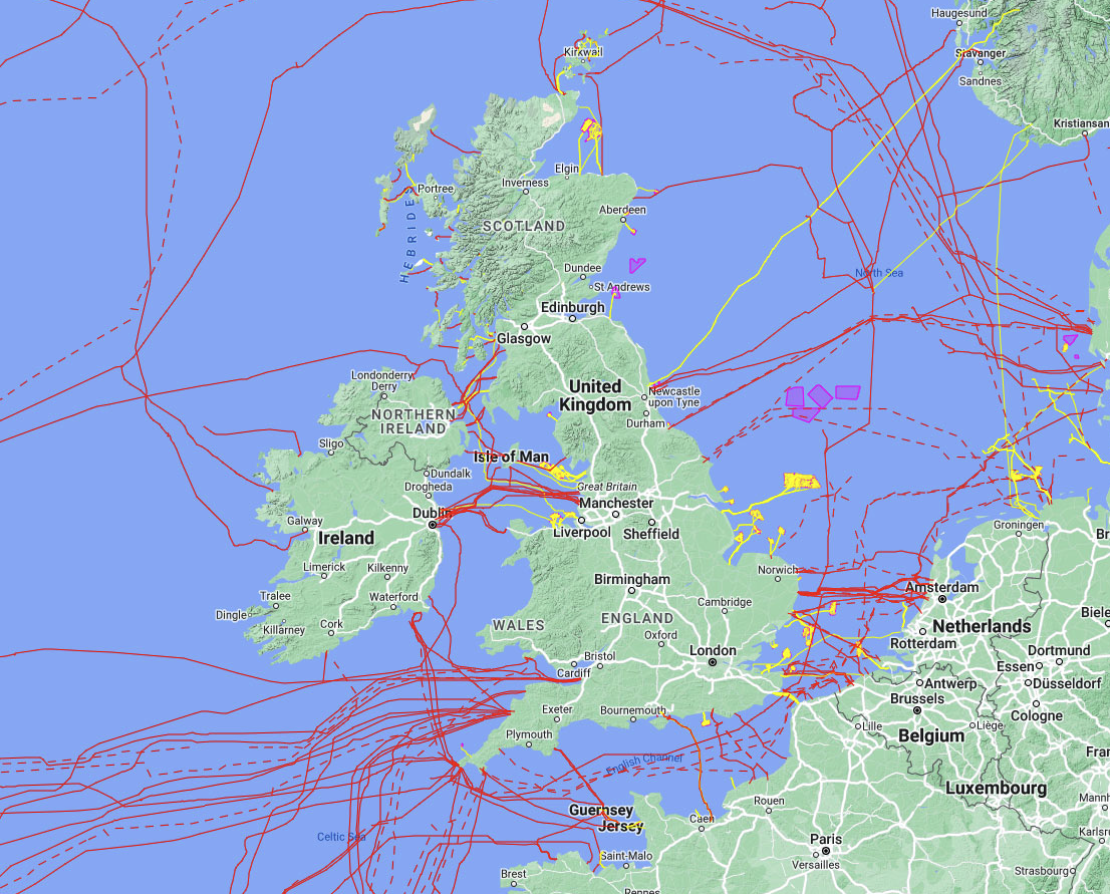UK Undersea Internet Cables Remain Vulnerable To Attack, Report Warns

Image: KIS -ORCA
The UK’s undersea internet cables, which carry almost all international internet traffic, are becoming increasingly vulnerable, and current government measures are seen as “too timid,” according to a report by the Joint Committee on the National Security Strategy. MPs and Peers warned that these cables could become a major weakness if hostilities arise and called for stronger action.
Nearly all UK internet traffic relies on undersea cables, with around 570 worldwide carrying 95–99% of intercontinental telecommunications data. Experts said that as large tech companies rely on a few high-capacity cables, these links are now high-value targets that could be attacked.While the Committee acknowledged that the cable industry has shown resilience against moderate damage, it warned that a major attack could quickly overwhelm UK infrastructure. The report cited concerns about Russia, referencing the recent presence of the Russian spy ship Yantar near UK subsea infrastructure as a potential threat.
The Committee identified specific vulnerabilities, including the UK’s outlying islands, military communication cables, and networks serving the financial sector. Sabotaging these links might not immediately disrupt national connectivity, but it would be costly, provocative, and difficult to prevent.More extensive damage could have catastrophic consequences, potentially causing failures in payment systems, supply chain disruptions, degraded communications, overstretched emergency services, and cascading problems from disrupted online authentication systems.To address these risks, the Committee recommended stronger deterrence.
These include scaling up monitoring schemes, faster information sharing with law enforcement, legal sanctions against malicious activity, and greater focus on direct physical interdiction and prosecution of suspicious vessels and their crews. The report suggested that a more assertive approach could succeed in preventing attacks but acknowledged the risk of retaliation.
The Committee also called for improved resilience planning, especially within the financial sector, and updated contingency scenarios accounting for potential damage to onshore landing stations. They cautioned against relying solely on the cable industry’s “business-as-usual” perspective when evaluating national security risks, noting that Russian aggression could escalate faster than UK resilience measures could be upgraded.
A key recommendation of the report is the acquisition of a cable repair ship by 2030. The vessel would be leased to private industry during peacetime but made available to the government during a crisis. Additionally, the Royal Navy should establish a dedicated group of reservists and serving personnel trained in cable repair, ensuring the UK can restore critical links if they are damaged in a conflict scenario.
Source : UK Parliament
